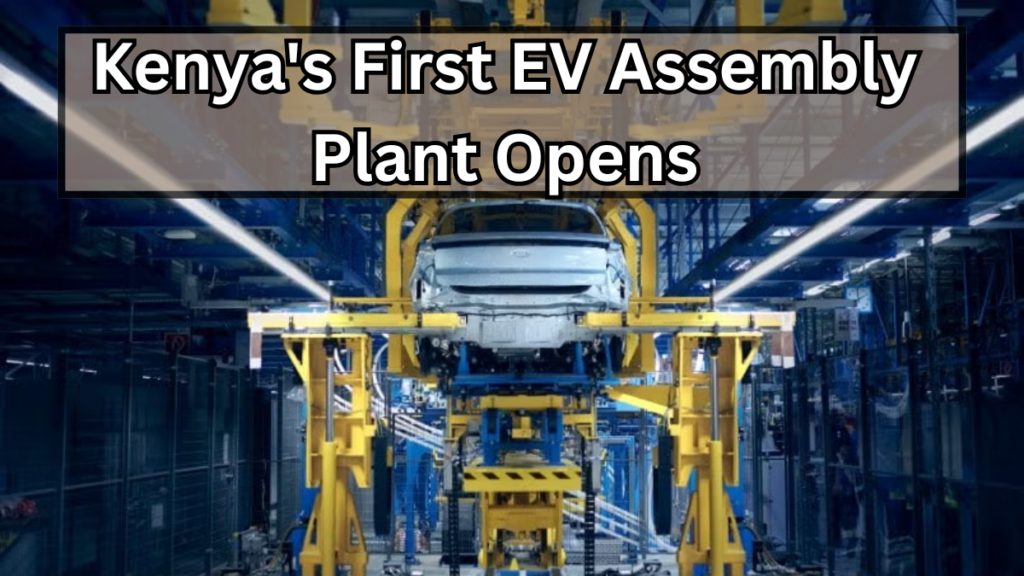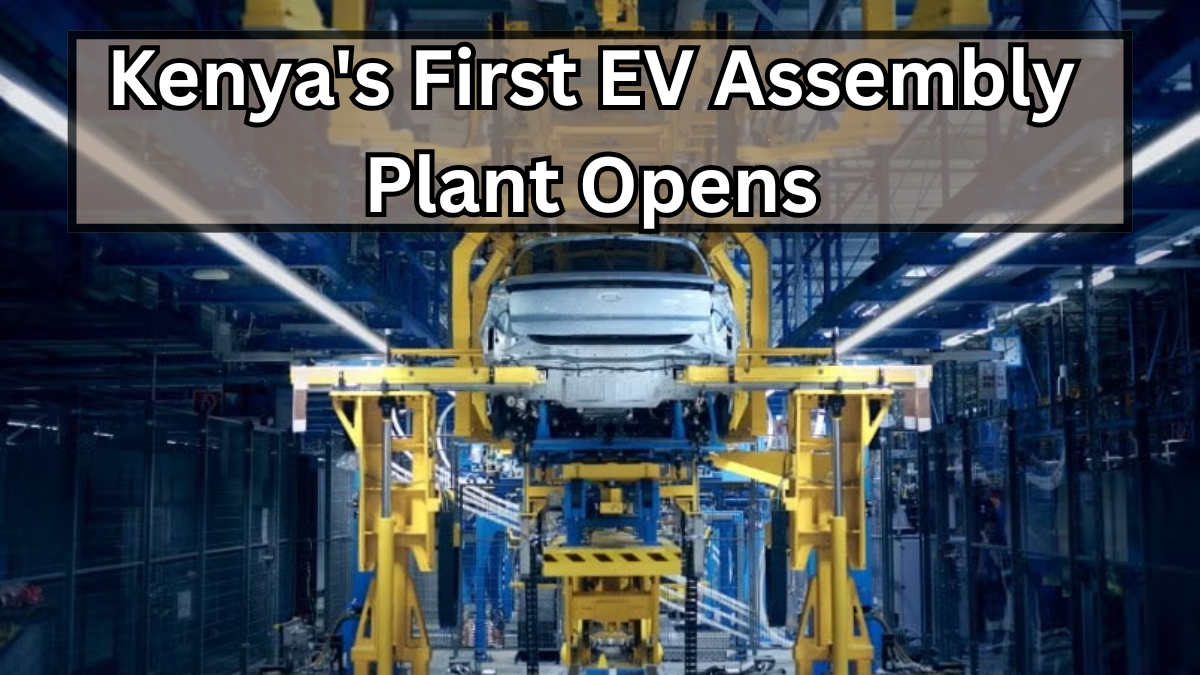Kenya has taken a historic step by launching its first electric vehicle (EV) assembly plant. This groundbreaking project is expected to reshape the local automotive sector, create Africa EV jobs, and attract substantial investment to the region.

Kenya EV Plant: A Major Leap Towards Sustainability
The Kenya EV Plant is more than just a factory—it’s a symbol of the country’s commitment to green technology and local development. It aims to meet the growing demand for electric mobility in Africa while reducing the need to import fully assembled EVs.
Key Highlights of the Kenya EV Plant
-
Location: Nairobi, Kenya
-
Annual Capacity: 1,000+ electric vehicles
-
Product Range: Buses, motorcycles, and light electric vehicles
-
Partners: Local investors and international EV manufacturers
How the Kenya EV Plant Will Boost Local Jobs
The most exciting impact of this plant is the expected growth in Africa EV jobs. This is a major opportunity to empower local communities and skilled workers.
Job Creation Impact
| Category | Details |
|---|---|
| Direct Jobs | 300+ positions immediately |
| Indirect Opportunities | Thousands in supply chains |
| Skills Development | Technical training programs |
| Target Groups | Youth, women, technicians |
How Jobs Will Be Created
-
Direct employment in assembly, engineering, and administration.
-
Support industries like battery production, logistics, and charging networks.
-
Training programs to upskill local mechanics and EV technicians.
Attracting Investment in Africa’s EV Future
The Kenya EV Plant is drawing attention from both local and international investors who see great potential in Africa’s green automotive future.
Investment Benefits
-
Lower costs by assembling EVs locally.
-
Access to government tax breaks and policy support.
-
Growing consumer demand for electric mobility across the continent.
-
Rising need for eco-friendly public transportation options.
Why This Matters for Africa’s Green Revolution
Kenya’s EV plant is a key part of a larger movement to push Africa toward sustainability.
Broader Impact Across Africa
| Impact Area | Expected Outcome |
|---|---|
| Environment | Lower emissions and cleaner air |
| Economy | Stronger local manufacturing base |
| Employment | Significant growth in Africa EV jobs |
| Regional Leadership | Kenya leading Africa’s EV transition |
Future of Electric Mobility in Kenya
The Kenya EV Plant is expected to play a critical role in shaping the country’s transport landscape by:
-
Rolling out electric buses to support Nairobi’s public transport.
-
Providing affordable electric motorcycles for daily commuters.
-
Establishing a reliable and accessible charging network.
This move is likely to encourage more African nations to invest in local EV manufacturing, positioning the continent as a future hub for electric mobility.
FAQs
1. What types of vehicles will the Kenya EV Plant produce?
The Kenya EV Plant will primarily assemble electric buses, motorcycles, and light vehicles designed to meet the transportation needs of both urban and rural areas.
2. How will this plant contribute to Africa EV jobs?
The plant will directly create hundreds of jobs and indirectly support thousands more in battery production, charging infrastructure, logistics, and EV maintenance, boosting Africa EV jobs across the region.
3. Will the Kenya EV Plant make electric vehicles more affordable?
Yes, by assembling EVs locally, the plant will significantly reduce the costs associated with imports, making electric vehicles more accessible to Kenyan and African consumers.
4. What support is the Kenyan government providing for the Kenya EV Plant?
The government is offering tax incentives, policy support, and infrastructure development to promote local EV manufacturing and encourage investment in the Kenya EV Plant.
Click here to learn more
Sachin is a dedicated writer specializing in education, career, and recruitment topics, delivering clear and actionable insights to empower readers.
